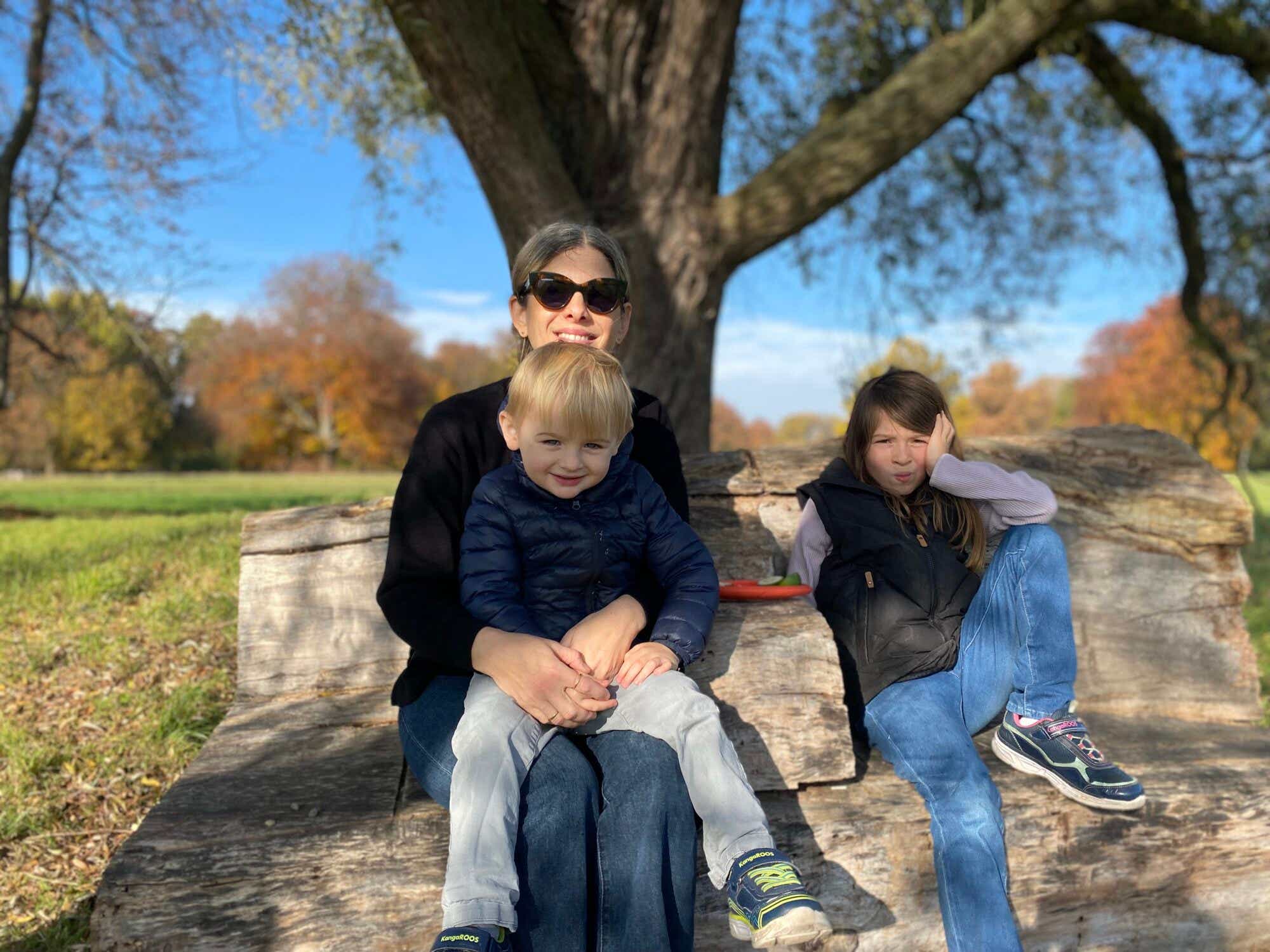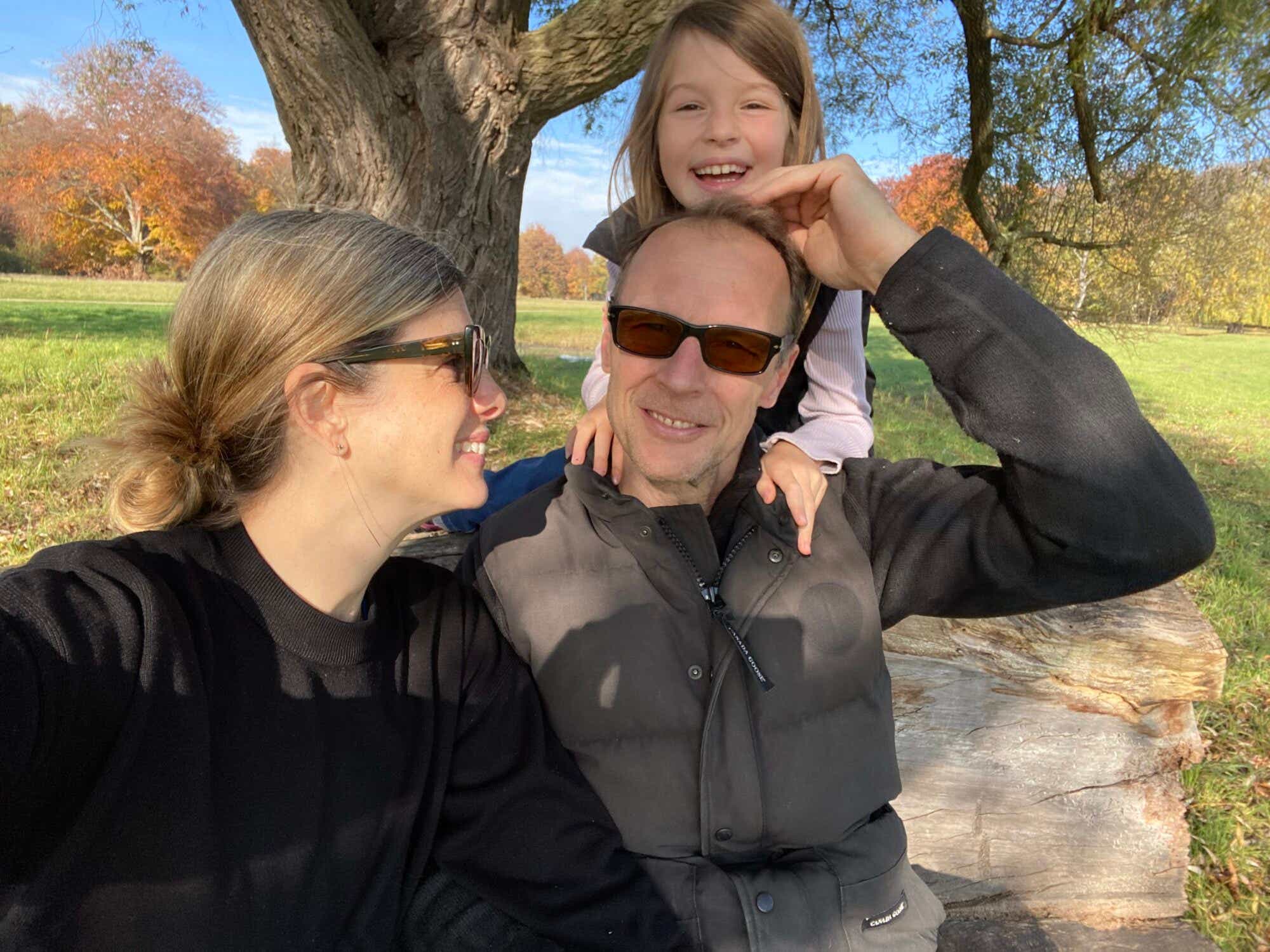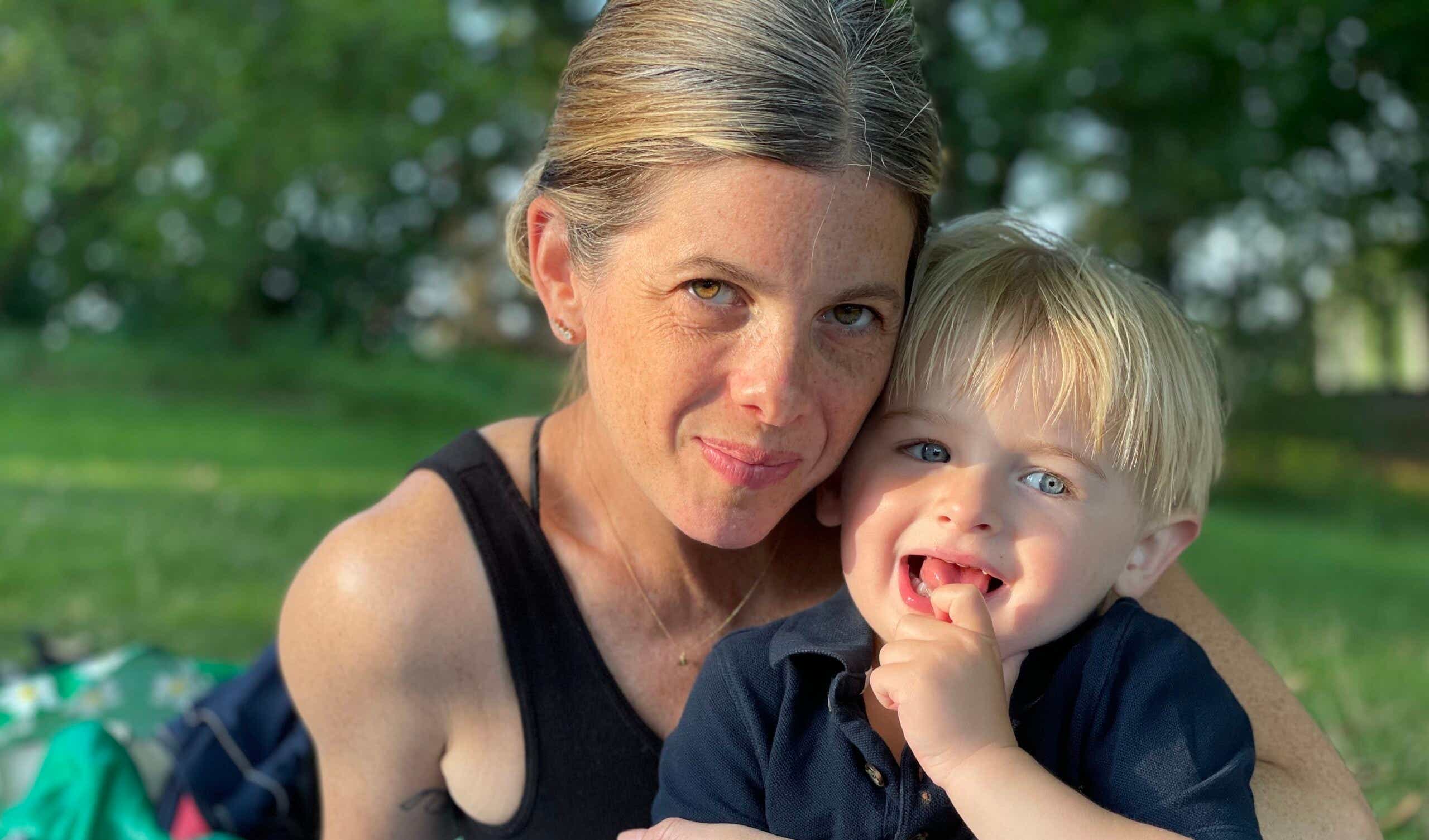Since Russia’s invasion on February 24, 10 million Ukrainians have fled their homes. About 6.5 million are thought to be displaced within the country itself, and over 4 million have left for neighboring countries. 270,000 of those refugees have sought shelter in Germany. Berlin, a city that had already been experiencing a housing crisis, is now accepting over 10,000 refugees each day.
Stephanie von Behr, her husband, and two kids had just moved into a new home in Berlin when the war began. We talked with her about why she decided to open her doors, and the long-term impact she hopes it has.
KCM: Tell us a little bit about your family…
Stephanie: My great-grandfather Morris Dodes was born in Odessa, Ukraine. He left when he was 15 and eventually migrated to Ellis island and became an American citizen. So I’m originally from New York and I moved to Berlin in 2013 to be with my now-husband, who I met in New York and we have two kids. My son, Julius, is three years old and my daughter, Valentina, is seven.

Why did you decide to volunteer to house refugees?
When the war happened, I went into a bit of a spiral of darkness and felt really depressed about the state of the world. Every day here in Berlin, there are over 10,000 refugees arriving from Ukraine — and we already had a housing crisis here in Berlin. There are just not enough apartments to go around.
Although I was donating to various nonprofit organizations, I felt that I could do more.
My husband and I listed ourselves on two separate websites, then I got a WhatsApp text from a guy who asked if the offer was still available for a woman named Marianna and her son, Sasha.

Where is Marianna’s husband?
Marianna left her husband behind in Ukraine, but she said that all the men actually feel a duty to stay and fight. He apparently works from home, for his job. Then after work, he goes and helps with the war efforts.
As you can imagine, she’s on the phone all day. She talks to her husband every day to check in and see how he’s doing. She said that all of her friends are spread out. Some are in Poland, some are in Romania, some are in Italy.
How are Marianna and her son doing?
When they arrived, I could see the pain in their faces. This was obviously a situation that they didn’t want to be in.
The trauma that these people have gone through is really heavy. And it would be great to have a locally based psychologist or therapist available to the refugees, but also to the hosts to help them better support the families they’re hosting.
She’s been here a little over a week and we are working out how best to help. I didn’t want to be too overbearing. Of course, this is a grown woman, she’s my age, so you don’t want to do too much.
Marianna said when she was in Poland, for the two weeks after she escaped the war, she wasn’t able to sleep. She said that since she’s been here, she’s been able to relax. It made me feel really good that we were able to provide some peace here, in our house.
As of yesterday, she’s registered with the German government, and the German government is trying to do all they can for the refugees, giving them money each month, helping them find housing, giving teamwork visas and health insurance for a year at least.
In Berlin, any Ukrainians can show their passport and use public transport for free. They can go to museums and the zoo for free. But at the end of the day, if you don’t speak any English and you only read Cyrillic letters, the Ukrainian alphabet, it’s quite hard for you to navigate the city.
Sasha is doing online school from Ukraine. If his teachers are going into the basement for air raids, they are teaching in the mornings.
Sasha and my daughter, Valentina are friends. They communicate by playing. They don’t have a language to speak, but it’s very sweet. They really like each other.
How did you explain the situation to your children?
Explaining war to a child is not something I imagined I would be doing. We make it very simple, that there are evil people in the world. And the leader of Russia is hurting people who are innocent and have families just like us, and that’s why they need to leave their homes. We have a home and we’re safe, so we can take in people who are in these situations.
This is such a heartbreaking moment in history… what gives you hope?
My hope is that one day when Sasha grows up, he’ll remember this experience. And then if need be, he can do the same for someone else. The same goes for my kids too.
I think it’s really important to live your actions and not just speak them. Friends of mine are doing a lot of great things. My friend Victoria Eliasdottir is a chef in Berlin, and she’s been cooking warm meals for refugees arriving at the train station. Another friend, Eugenia, is doing a GoFundMe to raise money to transport goods to the border in Poland.
We don’t just do it for Ukraine. We do it for freedom. And we realize that, at the end of the day, if we don’t fight for the Ukrainians, the next land that they’re going to come to is Poland, Germany, the Baltics. It’s all our fight — here in Europe, and in democracies everywhere.









